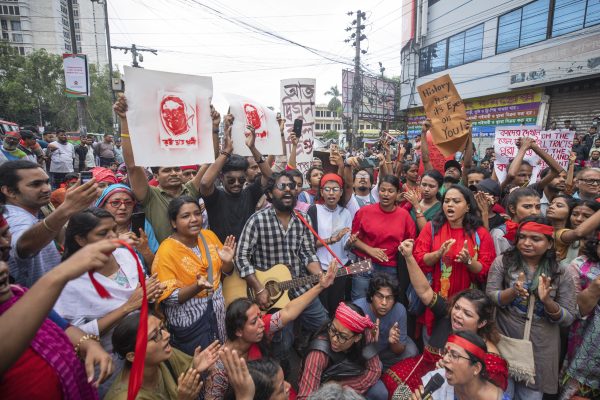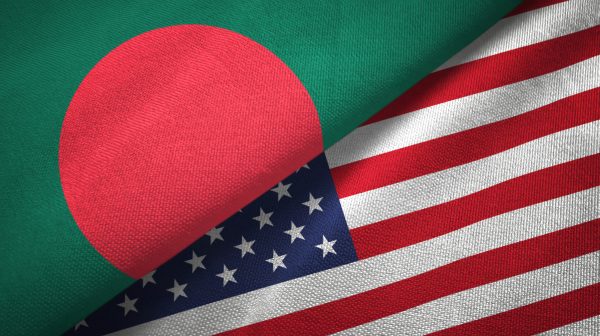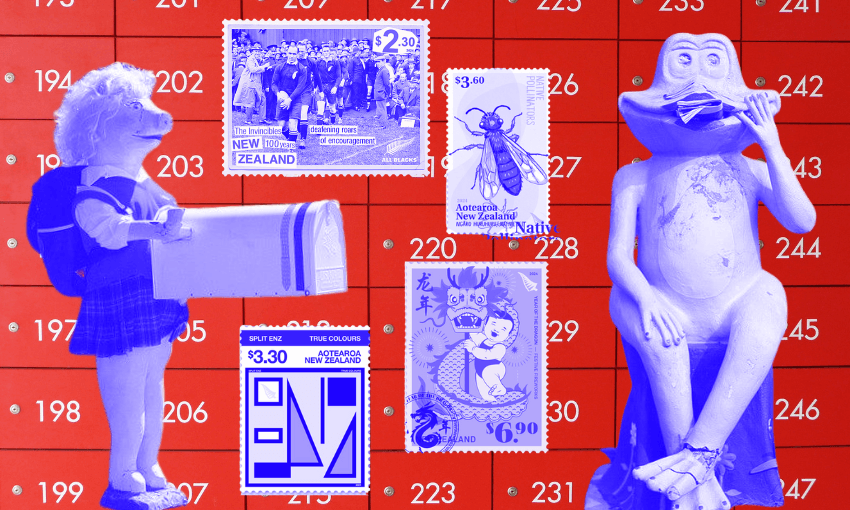Throughout July, Bangladesh has been experiencing a student protest that escalated into a mass protest with strong anti-government sentiment due to killings by law enforcement. The situation intensified after the death of six people on July 16, prompting students and citizens from all walks of life to take to the streets.
The Hasina administration has attempted to regain control by deploying the police, the Border Guard Bangladesh (BGB) and the Rapid Action Battalion (RAB). There have been reports of helicopters firing from the air, resulting in the tragic deaths of protesters and even of children who were inside their homes at the time.
On July 19, the government declared a curfew, which still remains in effect. On the first day of the curfew, people still took to the streets, and Bangladesh military soldiers fired on them. A video of this incident has been widely shared on social media.
The country faced a complete internet blackout for five days, and social media still remains inaccessible. However, people have been using VPNs to bypass the restrictions, and even policymakers from the ruling party have been posting on social media, claiming that the social media shutdown is necessary to restore normalcy.
Within two weeks, the death toll crossed 200 according to media reports, while the government reported the number at 150. Most of the victims were students, and tragically, many minors were killed by bullets fired by the police, BGB, and RAB.
The killings on the streets by law enforcement personnel has left the majority of Bangladeshis further stressed and angry. A. K. M. Shahidul Haque, former inspector general of the Bangladesh Police told The Business Standard, a Bangladeshi daily, “It is important to investigate the use of lethal weapons by police and other law enforcement agencies in suppressing the movement. I myself am deeply saddened by this incident, as many lives were lost.”
On July 21, the High Court finally ruled that the quota system – the original impetus for the protests – would be reformed. Previously, 56 percent of government jobs were quota-based and 44 percent merit-based; now, it is 7 percent quota-based and 93 percent merit-based.
However, the organizers of the Anti-Discrimination Student Movement did not withdraw their nine-point demand, as too much civilian blood had been shed.
Between July 26 and 27, the Detective Branch (DB) of Police took into custody the six organizers: Nahid Islam, Asif Mahmud, Abu Baker Majumder, Hasnat Abdullah, Sarjis Alam, and Nusrat Tabassum. The DB kept them in its custody, allegedly “to ensure their security.” Meanwhile, the organizers issued a statement that they are withdrawing all kinds of activities and protests.
However, after listening to their speech – delivered in a video from the DB office – people questioned the whole scenario. Many posted on social media, saying that the police cannot arrest them and speculating that the statement they read was made under duress.
Meanwhile, other organizers stepped up, stating through videos on social media that their seniors had indicated that if they were arrested, others must rise and continue their demands. They then declared a nationwide protest march for July 29. Students took to the streets in small numbers in Dhaka, Rajshahi, Jessore, and other places.
The police arrested more than 30 students in the capital on July 29. In total, within the last two weeks, they have arrested more than 9,000 individuals, including students, minors, opposition party activists, and even some civilians, according to media reports. Over 213,000 people, most of them unnamed, have been accused in around 200 cases filed with police stations in Dhaka alone, The Daily Star, a Bangladeshi daily, reported.
Every night, house raids are conducted in several areas of the capital in search of students. If students are found, law enforcement officers search their phones; it anything related to the protest is discovered, they take the students away without any court warrant.
It is true that throughout the protests, some establishments experienced significant vandalism due to clashes between students and the law enforcement personnel. Shops, government buildings, and vehicles were damaged as the unrest spread. Protesters, fueled by frustration and anger, targeted symbols of authority and the state.
However, the movement was a peaceful protest from the beginning until July 15, when members of the ruling Awami League’s student wing, the Bangladesh Chhatra League, attacked the protesters. The widespread vandalism after that led to further condemnation from government officials, who accused protesters of undermining public safety and stability.
The government also accused activists from the Bangladesh Nationalist Party (BNP) and Jamaat-e-Islami of infiltrating and exacerbating the protests. Officials claimed that these political groups had a hidden agenda to destabilize the country and exploit the genuine grievances of students and citizens for their gain. This narrative was used to justify the heavy-handed response and the extensive arrests of individuals allegedly connected to these parties.
However, many protesters and observers dismissed these accusations as an attempt to divert attention from the genuine issues and demands of the movement. Instead, people have been complimenting Generation Z (those born between 1997-2012), posting comments like, “You can’t fool Gen Z. We watch Christopher Nolan, and you’re showing us Delowar Jahan Jhantu (a Bangladeshi film director)?”
Amid the turmoil, the country faced another pressing challenge: a significant drop in remittance flows. Over the past week, remittances from Bangladeshi expatriates, a crucial source of foreign currency and economic stability, saw a sharp decline.
Bangladesh received $1.5 billion in remittances from July 1 to 24. However, from July 19, there was a significant drop in volume. From July 1 to 18, remittances averaged $79 million per day; from July 19 to 24, only $78 million was received over the entire six-day period.
This decrease added to the country’s economic woes, as remittances play a vital role in supporting millions of families and maintaining the balance of payments. The ongoing protests, internet blackout, and political uncertainty further strained an already fragile economy.
Today, the streets are returning to normalcy. However, the internet is flooded with anti-government sentiment among all classes of people.
On July 29, the government declared a mourning day on July 30 for the deaths during the quota protest unrest. However, the majority of people boycotted the mourning day. The organizers of the Anti-Discrimination Student Movement urged the people of Bangladesh to put something red on their Facebook profiles, or blindfold their eyes or mouth with something red, take a picture, and post it.
Abdul Hannan Masood, a coordinator of the movement, elaborated on the meaning behind the red cloth, as jagonews24 reported:
“The government insulted the martyrs by declaring a day of mourning for the victims while simultaneously conducting mass killings nationwide and branding the student movement as ‘violence.’ In response, we boycotted their black badge initiative. They are still responsible for bloodshed. Therefore, our campaign involves an online protest, with red cloth tied over our faces and eyes.”
As the clock struck midnight on July 30, social media began to flood with red. Students, teachers, civilians, activists, some celebrities, and journalists changed their profile pictures to a bloody red color, with some saying, “Here’s a red card for your staged mourning day.” Some teachers of Jahangirnagar University even held a silent rally with red cloths covering their mouths.





















Discussion about this post